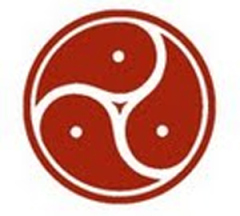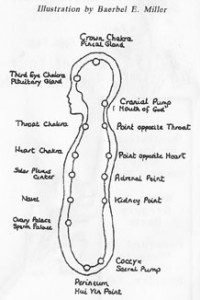Taoism
Taoism is also known as Daoism because the ‘T’ is pronounced like a ‘D’.
It is found mostly in China and other East Asian countries.
3 Jewels of the Tao:
-Compassion
-Moderation
-Humility
Source: http://taotemple.org/2012/11/22/four-pillars-sixteen-fortitudes-right-relationship/
Religious Text(s) and their Teachings:
-“The Dao de Jing”
A work that simply contains teachings and sayings, laid out in a poetic format. It is beautiful and mysterious at the same time.
- Profit comes from what is there and usefulness from what is not there.
- Work hard and achieve awards, but do not boast in them.
- The Tao is something that cannot be described in words.
- The Tao is the source of the world and everything in it, yet it is also the source of nothing.
- The Tao can be a way to communicate with the Tao and to blend oneself with it.
- Those who do not wish to rule are those best suited for it because they are less likely to be corrupted by the power that accompanies rulership.
-“The Zhuangzi”
It is a work in prose format that uses metaphors and stories to teach important doctrines.
- The Tao is contradictory, but balanced in its contradictions.
- The Tao is what unifies all things.
- The Tao is absolute, but it is also capable of change.
- Because we are unsure of the realities of the world, we should not worry about death or life.
- He “celebrates inaction, even laziness, as opposed to a life of struggle for grain and a character dominated by desire” (Watson, Burton. “Literatures of Asia, Section 2: China”. Hackett Publishing Company 1993).
- Praise what you have and do not worry about what you do not have.
- Things change, so do not have an attachment to them.
-The supreme good is metaphysical rather than moral (as in Confucianism).
-Taoism does not like or approve of duty, power, and politics.
Important Figure(s):
-Laozi:
Scholars are unsure if there actually was a man named Laozi who wrote “The Dao de Jing”, or if he was a legend created by later followers. For the sake of simplicity, we will assume that he existed and did all that is credited to him.
- Supposedly lived in the fourth-third centuries B.C.
- Writer of poems and philosophical ideas
- “The Dao de Jing” – “A collection of prose and verse wisdom literature that is considered the seminal and essential work of Taoism” (Feng, Gia-Fu and English, Jane. “Literatures of Asia, Section 2: China”. Hackett Publishing Company 1993).
-Zhuangzi:
- C. 369-286 B.C.
- Taoist philosopher
- The most important Daoist interpreter (read and explained Laozi’s work).
- He was not interested in ethical or social reform, so he did not include them in his text.
- Writer of “The Zhuangzi”
- “Celebrated spontaneity and the cultivation of an inner emptiness that allowed one to merge with the Tao. Human problems are created by human categories; the way out of them is not through changing the world but through changing the way you understand the world” (Watson, Burton. “Literatures of Asia, Section 2: China”. Hackett Publishing Company 1993).
Qi (Chi):
-Life-force/energy that flows through the body.
-When a person’s body is not in perfect harmony with itself, there are blocks in the flow pattern of the Qi. These blocks happen in areas called chakras – places where large amounts of energy are stored (the brain, stomach, heart, etc.). One can release the blocks through either acupuncture or the practice of Feng Shui and so fixing the imbalances that are occurring both inside and outside the body.
Source: http://www.melora.org/MCOGuide.html
Holidays*:
-Lantern Festival- Celebrates the first full moon of the year. It also celebrates the birthday of Tianguan, a Taoist deity who brings good fortune.
-Tomb Sweeping Day- The day on which Taoists can celebrate their ancestors. During the Tang Dynasty, one of the emperors did not like that people were randomly celebrating their ancestors, so he decreed that all ancestor worship was to occur on one day.
-Dragon Boat Festival- It is a day on which the people remember Qu Yuan, who threw himself into a river after his kingdom had been conquered by another dynasty. He had been a poet, statesman, and minister to the emperor, and his last poem included yoking two dragons to a chariot.
-Ghost Festival- This is similar to the United States’ ‘Halloween’ and is a day to remember the dead. It is believed that at this time of year (the seventh lunar month) the lines between the realms of the living and the dead (the realms of both Heaven and Hell) are smaller than ever and so communication can pass through the barriers from one realm to another.
-Mid-Autumn Festival- This is the second most important festival (after the Chinese New Year). It is a celebration of the moon goddess and so is celebrated when the moon is at its largest and fullest (during the eighth lunar month).
-Double Ninth Day- Celebrates the ninth day of the ninth lunar month. Nine is considered to be a dangerous number because it is the best number for ‘yang’ and there is a double dose (9/9) of it on this day, so there is a lot more chaos in the world on this day. People try to protect themselves from this dangerous energy by climing mountains, drinking chrysanthemum wine, and carrying dogwood around.
-Chinese New Year- (Spring Festival) Most important festival of the year. The extended festival lasts up to five weeks, though the proper festival starts on the first day of the new year and goes until the 15th day. It involves a lot of food and dancing and invoking the names of Taoist deities (though Buddhists, Confucians, and Taoists alike all celebrate the New Year).
*From: http://taoism.about.com/od/holidays/a/Taoist-Holidays-2013.htm
Vocabulary:
-Tao (Dao) – The way, path, doctrine, channel, etc. It can also mean the flow of the Universe.
Source: http://briancroxall.pbworks.com/w/page/8178706/20091029-930%20Tu%20Fu%20and%20Li%20Po%20(Group%204)
-Qi- The flow of energy through the Universe that is often associated with the Tao.



